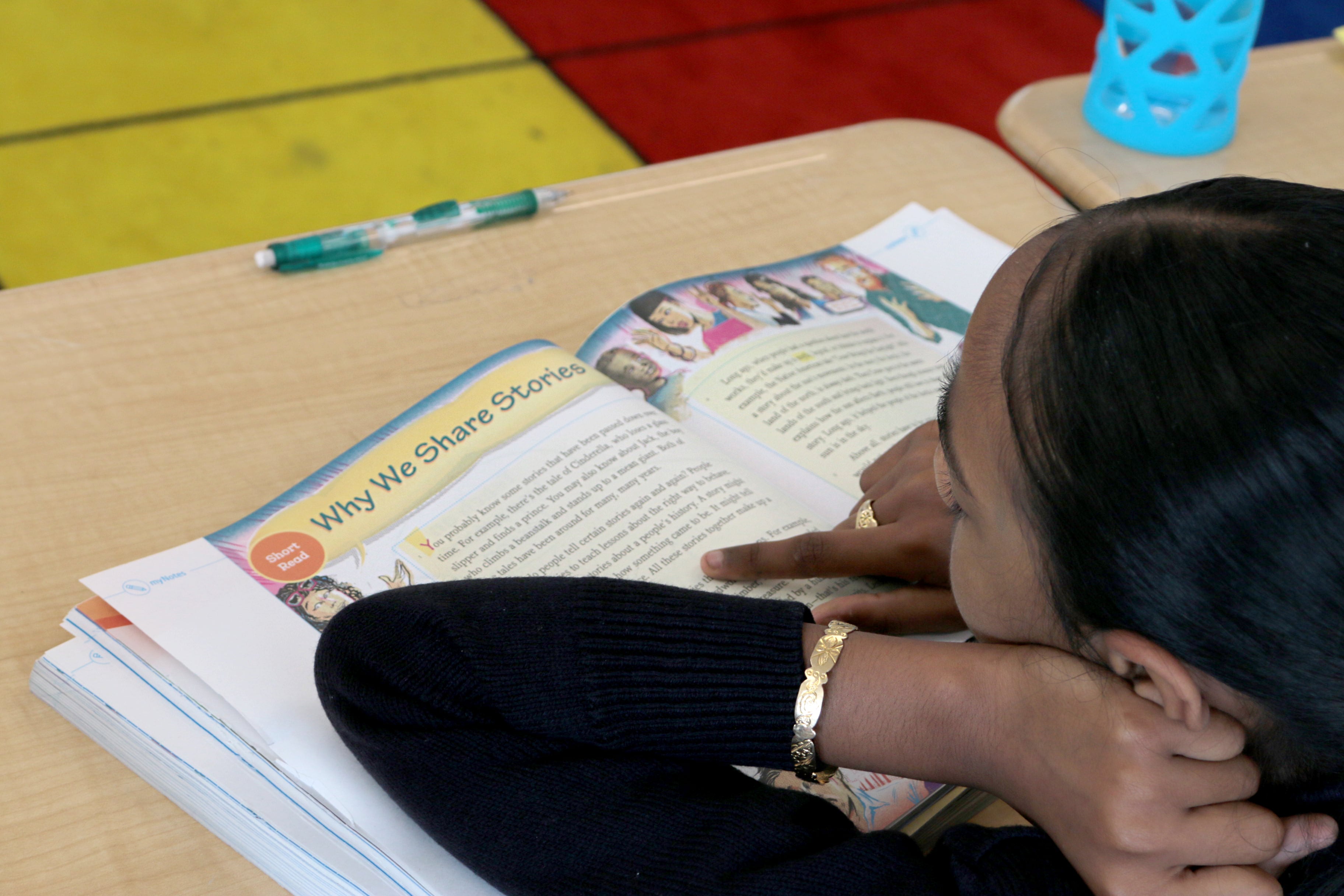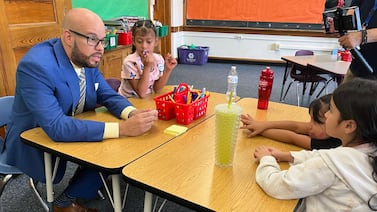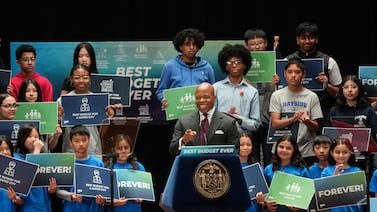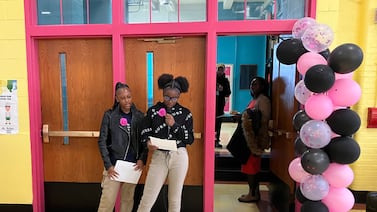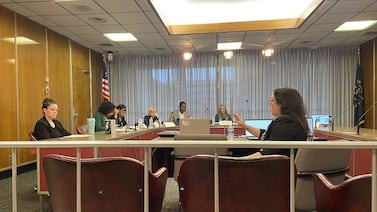First grade students should be the target of a large chunk of the $94.4 million the Detroit school district received from the state as a lawsuit settlement, according to a key recommendation from a task force that was created to provide guidance.
That recommendation would have the district spend 60% of the settlement on “initiatives tailored for 1st-grade students, ensuring these funds are dedicated to programs that follow and support these students’ progress,” as they move to second and third grades.
The remaining money would go toward tutoring for older students in the Detroit Public Schools Community District.
The money is part of the settlement of a 2016 lawsuit filed against the state of Michigan by Detroit students who alleged they were denied access to a basic reading education while the district was controlled by state-appointed emergency managers. The lawsuit outlined poor academic and physical conditions in district schools.
A 2020 settlement in the case called for the creation of a Detroit education task force and reserved $94.4 million in state money for DPSCD to support evidence-based literacy interventions. The Michigan legislature, which was under Democratic control last year for the first time in decades, included the money in this year’s budget after previous attempts failed.
The task force had 23 recommendations from 200 gathered during community meetings held over several months. Many common themes emerged within the ideas provided by the community, said Lakia Wilson-Lumpkins, who chaired the task force.
“Parents wanted to see more tutoring. They wanted parent family workshops. They wanted to see culturally-responsive literature materials,” said Wilson-Lumpkins, president of the Detroit Federation of Teachers.
Seven of the recommendations were identified as priorities, in part because they were vetted through the U.S. Department of Education’s What Works Clearinghouse, which provides “scientific evidence on education programs, products, practices, and policies,” according to its website.
In addition to the focus on first grade, the recommendations include:
- Adopt more reading intervention programs across all grade levels.
- Adopt a supplemental reading program that is aligned with the science of reading.
- Increase the number of reading interventionists who work with English language learners.
- Increase access to culturally-responsive reading materials.
- Increase one-on-one tutoring through various existing programs.
- Expand literacy programming that personalizes and enhances students’ aspirational learning journeys.
The task force, which included more than a dozen educators, literacy experts, district and union officials, students, parents, and community members, delivered the recommendations to district leaders and school board members Tuesday, Superintendent Nikolai Vitti said during the board’s monthly meeting.
Their recommendations far exceeded the $94.4 million, totaling well over $200 million for one year. The seven priorities alone total $70 million for one year, based on the DPSCD chief financial officer’s cost estimates.
Task force member Rev. Larry Simmons, who co-founded advocacy group 482Forward, said it was challenging to pare down the recommendations.
“Even as we disagreed, we disagreed about method, not outcome,” said Simmons, a retired pastor who is executive director of the Brightmoor Alliance. “There was a very strong commitment and recognition that this was a unique, maybe once-in-a-lifetime opportunity. We had to be very careful not to squander it.”
Vitti told Chalkbeat Wednesday that district staff will provide an analysis of the recommendations to school board members.
“From there the Board and I will offer final recommendations on how to use the funding and then engage the community on those recommendations,” Vitti said in an email. “After that the Board will vote in April or May on their official use.”
Vitti said the recommendations align with the district’s own literacy priorities. The district is not required to adopt any of the task force’s recommendations.
There is much at stake in Detroit schools. Though the district has shown signs of recovery from the pandemic, reading performance on the state standardized exam remains low. And on the National Assessment of Educational Progress, a national exam given to a representative sample of students in each state, Detroit students have posted some of the worst reading scores in the nation since 2009.
The first-grade recommendation, which would cost $94 million over three years, should be a priority, Simmons said. The money could go toward teacher training, family engagement, and interventions regarding attendance, the task force said in its report.
First grade “is the first opportunity we have for every child who’s required to come to school to address this. By staying with these children through the third grade, we get some longevity,” Simmons said.
The reality, though, is that while $94.4 million sounds like a lot of money it will only go so far in a district with more than 48,000 students, Simmons said.
The district must spend the money by Sept. 30, 2027. It is one-time funding and there is no indication lawmakers will provide additional money specifically for literacy efforts in the Detroit district. But Simmons said groups like 482Forward will continue advocating for more money because of the importance of literacy.
“Literacy is liberation,” Simmons said.
Wilson-Lumpkins described the work of the task force as “a beautiful process,” and said she is hoping for one thing now that it’s up to the district to determine what recommendations to adopt.
“That these community meetings were not in vain, and the community has spoken resoundingly. The injury {that prompted the lawsuit} was to the community and so what we’re hopeful for is that these recommendations are taken very seriously. This was hard work. But parents wanted their voices heard. Kids wanted their voices heard.” Wilson-Lumpkins said.
Lori Higgins is the bureau chief for Chalkbeat Detroit. You can reach her at lhiggins@chalkbeat.org.

